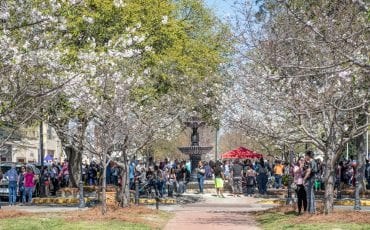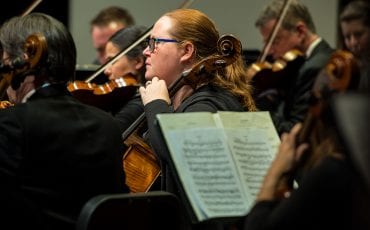Get Schooled: Understanding the Educational Choices
Navigating the education world isn’t as easy as it used to be. There are so many types of schools available, each with their own philosophy and structure. Private schools in metro Atlanta can be very specialized and each set their own tuition and admissions processes. Even within public school systems, schools can offer different classes and distinct opportunities.
You should speak with other parents who have similar values, visit schools to see if you think your child would be happy, and consider practical things like location and costs. To help make your journey to the right school shorter, here’s a guide to demystify school choice.
Table of Contents
Charter Schools
Charter schools are public schools that operate with freedom from many of the local and state regulations that apply to traditional public schools. Functioning as a public school, they are tuition-free and do not have admissions criteria beyond residency. Charter schools are autonomous and allowed to make their own decisions, operating under the terms of a charter, or contract. There are 100 charter schools in Georgia, according to the Georgia Department of Education, and during the 2021-2022 school year, 60,039 students were enrolled in Georgia public charter schools, according to the Georgia Charter Schools Association.
Faith-Based Schools
A faith-based or religious school is a school that identifies with a specific religious group, such as Catholic, Jewish, Protestant or Episcopal. These schools are always private institutions, although not all private schools are religious. You will usually see a school’s religious affiliation listed within its description, and these schools have curricula that include teachings of faith along with the traditional curriculum.
Homeschool
Homeschool programs allow children to be educated at home. Georgia’s home study law requires homeschool parents/guardians to provide a basic academic educational program which includes mathematics, English/language arts, science, social studies and reading. Parents/guardians decide which curriculum is best for their child, and you must submit a Declaration of Intent by Sept. 1 or within 30 days after a home study program. You may employ a tutor. Parents must have a high school diploma or GED. Some families group together to form homeschool pods or learning pods.
Hybrid Schools
Hybrid learning environments combine virtual learning and face-to-face classes. Students come into school at least one day a week with a schedule that includes days of remote learning.
International Baccalaureate (IB) Schools
This educational program allows children to take risks, collaborate with others and acquire deep knowledge through a Program of Inquiry or Unit of Inquiry that focuses on trans-disciplinary models. The four stages of IB learning: Primary Years Programme: Ages 3-11; Middle Years Programme: Ages 11-16; Diploma Programme: Ages 16-19; Career-related Programme: Ages 16-19 with a focus on career-specific learning. It is offered in 98 schools across the state, both public and private.
Language Immersion Schools
In Georgia’s dual language programs, students spend at least half of their school day in the target language and the other half in English in order to help students achieve higher proficiency in the second language. Programs across Georgia include immersion in Chinese, French, German, Spanish, Korean and Japanese. These schools can be public or private.
Magnet Schools/Programs
With magnet education, learning is centered around one big theme. Magnet schools are free public schools operated by school districts allowing kids to focus on a specific learning track. For example, Fulton County high school students have the option to enroll in one of their four magnet programs, if they are interested in mathematics and science, visual or performing arts, international studies, business or STEM.
Montessori Schools
Developed and named for Dr. Maria Montessori, Montessori education is a child-focused approach that is student-led and self-paced but guided, assessed and enriched by teachers. Students are taught in a multi-age classroom, and individual students follow their own curiosity at their own pace.
Nature-Based Schools
Nature-based schools have the same academic standards of a traditional school, but nature is at the core of the school’s philosophy, curriculum and classroom design. These schools can be public or private, and are typically focused on the early education years, starting at the preschool level. The natural world is infused into the teaching of every subject, outdoor time is extensive, and activities are based on seasonal happenings.
Private Schools
Private or independent schools are, by nature, schools of choice. Families can choose their child’s learning environment based on matching their family’s world view, religious values or education philosophy. Private schools can set their own admissions standards. There are 720 private schools in Georgia.
Public Schools
Public schools are generally primary or secondary schools that educate all students without charge. They are funded in whole or in part by taxation. There are currently 181 school districts across the state of Georgia containing more than 2,200 schools and employing more than 114,800 teachers who educate approximately 1.6 million students every day.
Reggio Emilia Schools
The Reggio Emilia Approach has its first traces in the mid-19th century and is based on a poem written by Loris Malaguzzi entitled “No way. The Hundred is There,” which depicts children as having multiple ways of thinking and doing that needs to be nurtured rather than corrected. The approach values children as active protagonists in their growing processes with progettazione/designing, the hundred languages, organization, environment and spaces, participation, learning as a process of construction, formation/professional growth, educational research, evaluation and educational documentation.
Special Education Schools
Special education schools are private and public schools that serve students with special needs. Some focus on multiple needs; others on specific learning differences. These can include communicative, physical and social learning differences like ADHD, autism and hearing impairment. Teachers are educated to meet the specialized learning needs of students. They often have an extensive support staff of guidance counselors, psychologists and social workers.
Virtual Schools
Virtual or online schools are educational programs that are attended remotely. Schools or academies may be public or private. For example, the Georgia Virtual School is an internet-based public school housed in the Georgia Department of Education that serves public, private and homeschooled students throughout the state.
Waldorf Schools
Waldorf schools offer a developmentally appropriate, experiential and academically rigorous approach to education by integrating the arts in all academic disciplines. Waldorf education aims to inspire life-long learning in all students and to enable them to fully develop their unique capacities. Founded in the early 20th century, Waldorf education is based on the insights, teachings and principles of education outlined by world-renowned artist and scientist Rudolf Steiner.
For more information, visit schoolchoiceweek.com, gadoe.org, gacharters.org, ibo.org, reggiochildren.it, waldorfeducation.org and amshq.org.
What to look for in choosing a school:
- Qualified teachers and administration.
- Curriculum and learning environment that suits your child.
- School culture and values that your family can embrace.
- Transportation accessibility and travel time.
- Helpful extracurricular options like clubs and after care.
- Safety and security.
- Engaging opportunities for parent involvement.
- Open and informative parent-teacher communication.
- Happy, vibrant students.
- Class sizes and student-teacher ratios.








